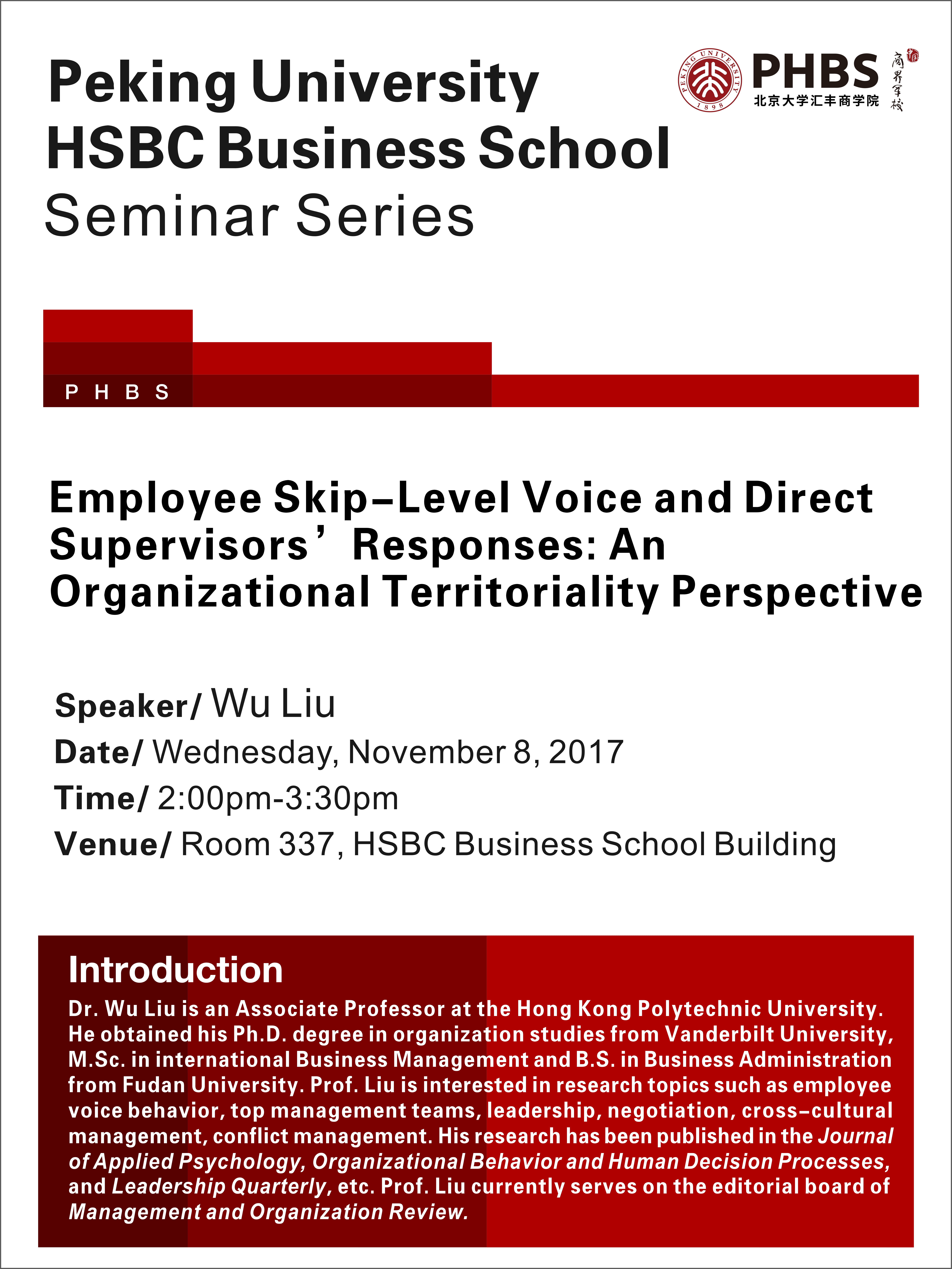
We examine how direct supervisors react to a special form of voice, skip-level voice, which refers to employees’ voice behavior toward higher-level leaders while skipping over their direct supervisors. Drawing from the theory of organizational territoriality, we contend that skip-level voice is an act of intrusion upon direct supervisors’ authority territory, thus inducing their retaliation against the voicers; yet this effect is dependent on the content of skip-level voice. Based on two time-lagged independent studies, we found that frequent skip-level voice is more likely to induce direct supervisors’ territorial defense behaviors (i.e., undermining behavior and territorial reclaiming behavior) when the voice content contains more issues that potentially shrink direct supervisors’ authority (i.e., high authority-infringement) and fewer issues that potentially expand direct supervisors’ authority (i.e., low authority-expansion). By contrast, frequency of skip-level voice is positively related to direct supervisors’ social inclusion behavior when the voiced issues are low on authority-infringement but high on authority-expansion. We also found that interpersonal affect functions as an important explanatory mechanism underlying the relationships between skip-level voice and direct supervisors’ territorial defense behaviors.


 We examine how direct supervisors react to a special form of voice, skip-level voice, which refers to employees’ voice behavior toward higher-level leaders while skipping over their direct supervisors. Drawing from the theory of organizational territoriality, we contend that skip-level voice is an act of intrusion upon direct supervisors’ authority territory, thus inducing their retaliation against the voicers; yet this effect is dependent on the content of skip-level voice. Based on two time-lagged independent studies, we found that frequent skip-level voice is more likely to induce direct supervisors’ territorial defense behaviors (i.e., undermining behavior and territorial reclaiming behavior) when the voice content contains more issues that potentially shrink direct supervisors’ authority (i.e., high authority-infringement) and fewer issues that potentially expand direct supervisors’ authority (i.e., low authority-expansion). By contrast, frequency of skip-level voice is positively related to direct supervisors’ social inclusion behavior when the voiced issues are low on authority-infringement but high on authority-expansion. We also found that interpersonal affect functions as an important explanatory mechanism underlying the relationships between skip-level voice and direct supervisors’ territorial defense behaviors.
We examine how direct supervisors react to a special form of voice, skip-level voice, which refers to employees’ voice behavior toward higher-level leaders while skipping over their direct supervisors. Drawing from the theory of organizational territoriality, we contend that skip-level voice is an act of intrusion upon direct supervisors’ authority territory, thus inducing their retaliation against the voicers; yet this effect is dependent on the content of skip-level voice. Based on two time-lagged independent studies, we found that frequent skip-level voice is more likely to induce direct supervisors’ territorial defense behaviors (i.e., undermining behavior and territorial reclaiming behavior) when the voice content contains more issues that potentially shrink direct supervisors’ authority (i.e., high authority-infringement) and fewer issues that potentially expand direct supervisors’ authority (i.e., low authority-expansion). By contrast, frequency of skip-level voice is positively related to direct supervisors’ social inclusion behavior when the voiced issues are low on authority-infringement but high on authority-expansion. We also found that interpersonal affect functions as an important explanatory mechanism underlying the relationships between skip-level voice and direct supervisors’ territorial defense behaviors.





